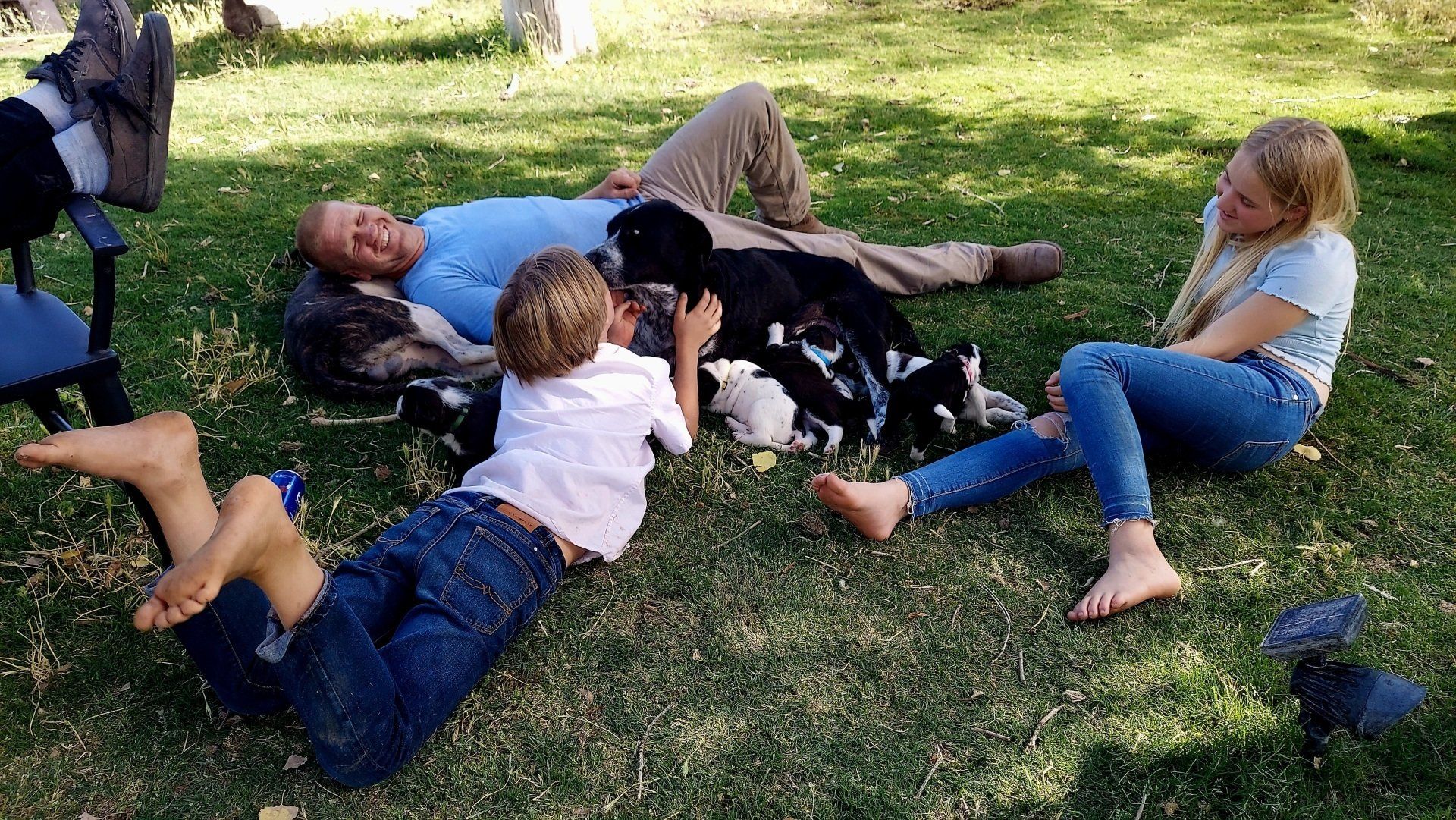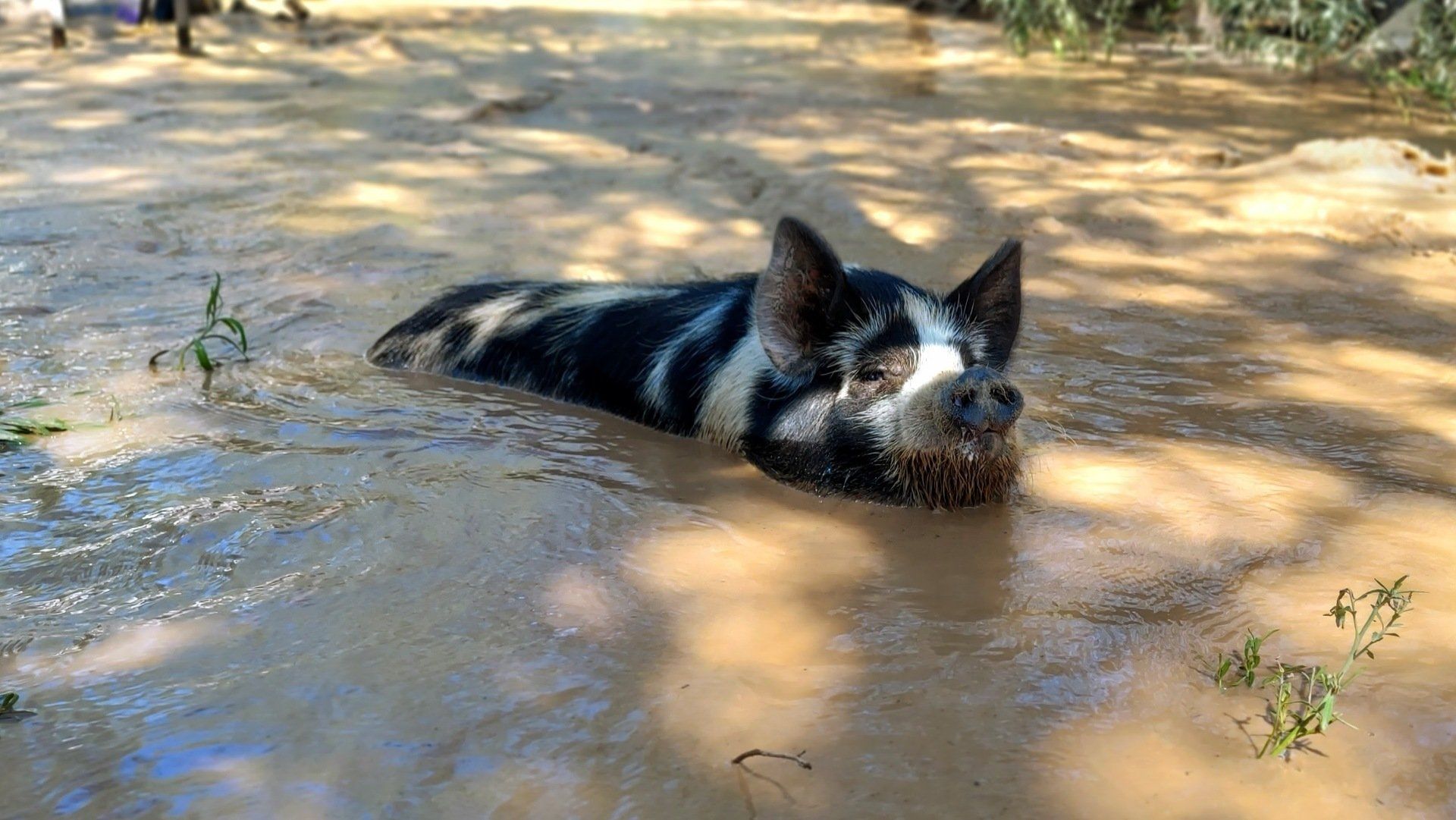Life in Abundance
Regenerative Agriculture? Whats the Deal?

Regeneration for Future Generations
Regenerative agriculture employs agricultural practices that focus on being able to self perpetuate food production by working with local ecosystems and perhaps more importantly, not against them. It is basically a win/win cooperation with nature that feeds everything, and has an end goal of regenerating areas that may have been destroyed by overgrazing, soil erosion/degradation, ground water depletion, drought, etc... Given that we live on the eighth most endangered waterway in the United States, the idea of restoration through food production intrigues me. It often employs the use of organic farming techniques, no till practices, rotational grazing, and water retention. Many of these practices have been utilized throughout the history of agriculture, but in the last hundred years our food production has become more developed and has become subservient to industrialization more and more. This has had many vast and varied consequences that have still not fully manifest themselves. There has been an overwhelming focus on pushing the limits of how much we can produce, and unfortunately this allows for a lack of care when considering the interests of future generations. Regenerative agriculture and permaculture deemphasize overall harvest yield and focus on building up native ecosystems in order to harvest from that result. In other words, our appetite shouldn't consume the world around us, we want to respectfully eat from the world around us. This may sound degrading to what existing farmers are practicing, and to be forthright, I agree. I feel very reluctant criticizing conventional farmers, and I doubt the altruistic romance of wonderful sounding solutions is something conventional farmers are simply ignoring because they just want to kill more chickens as fast as they can. Or even better, they just haven't spent enough time farming to have figured this out. It's a good thing I was born with the messianic foresight to know what to do to save the universe, otherwise we might all be up a creek, right?
So, What's the Problem?
Our industrial agricultural practices are not sustainable and we have known that for quite some time, but the consequences have always been far enough away that we could continue without making substantial changes. Today, those consequences are not far away, they are here, and they have just become more pronounced by the industrial disruptions from Covid and the Russia/Ukraine war. According to The World Economic Forum, (which is one of the most official sounding organizations ever assembled) "By 2050, with the global population expected to reach 9.8 billion, our food supplies will be under far greater stress. Demand will be 60% higher than it is today, but climate change, urbanization, and soil degradation will have shrunk the availability of arable land." Forbes estimates the stress of future demand even higher at 68%. There's plenty of data available for all you info nerds out there, but you don't have to look far before you find the same issue. We waste over a quarter of the food we produce. It is said that we will need to produce more food in the next 50 years than humans have ever produced, ever. We have basically produced a food production crisis by artificially straining the amount of food we can grow, and it is not going to be easy to resolve because industry has handcuffed the market to that production. Experts are now claiming this problem has now become so unbearable that many Americans actually care about it a little bit. Several other famous people that my kids know have also become uncomfortable thinking about what the term agriculture means.
What should we do?
In a lot of ways this might sound like the end of the world is here for us all, but I think that's mostly just a fear reaction. Whenever my thinking becomes distorted by fear I try to turn to God for peace and wisdom. I have come to realize that my fear is usually blinding me to the answers that God has already provided. It's hilarious sometimes to look back at how obvious some of my foolishness is. Often, I'm practically stumbling over the truth because I can't settle myself down enough to notice it. King Solomon observed this as well when he said, "The wise man has eyes in his head while the fool walks in the darkness."
So the first thing we should do is settle down, humble ourselves, be quiet and look at what God is showing us. Many times I already know what I should do, I just need to settle my heart down. What does wisdom say about this? Well... let's put some wisdom to the test right now.
The Biblical Perspective
"Whatever a man sows, that he will also reap." So let's stop sowing irresponsibly, and let's work to be more responsible in the way we live, what we eat, what we waste, how we work, and how we rest. When it comes to work, our first job was to take care of the natural world around us. "At the time that the Lord God made the earth and the heavens, no shrub of the field had yet grown on the land, and no plant of the field had yet sprouted, for the Lord God had not made it rain on the land, and there was no man to work the ground." (Genesis2:4b-5) And we know after the fall of man that we made our work more difficult. "Cursed is the ground because of you; through painful toil you will eat of it all the days of your life. It will produce thorns and thistles for you, and you will eat the plants of the field." Now, it obviously makes no sense for everyone on earth to live as farmers and there is no Biblical inference to that, but we should absolutely be responsible for the way we eat and live, and we should work to make functional contributions to our families and communities to the best of our ability utilizing our strengths and talents.
Regenerative Agriculture adopts the idea that, if we demand food from our soil, we must likewise feed our soil in a cooperative reciprocation. For example; instead of throwing food scraps in the trash, throw it out in the yard for a welcome animal to eat it, or for earth-worms, fungi, or mushrooms to consume it. All of these processes end up saturating your soil with desirable nutrients that encourage rich soil health. Doing that in your yard might might not be a practical way to feed anyone, but applying that principle in complete systems makes a lot of sense. Taking your food scraps out to your favorite local farm every movie night is a great way to help with food waste. Good soil reciprocates goodness and like any relationship, the more we value it, the more it grows in value.



